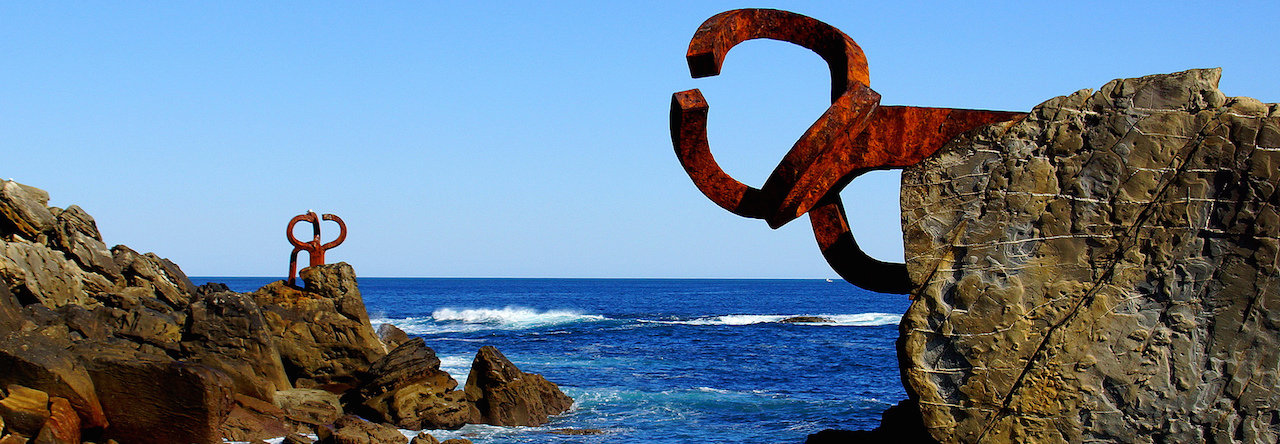The short term and populist politics our politicians are used to practise is delaying the end the global crisis. They are not the only factor of the solution, but their fear to face the real problems of the economic system is causing so much pain in our societies. At the moment, the only big action they have taken is to increase the public expenditure as it is an easy and popular policy.
Etiqueta: public_sector Página 1 de 2
In our times, it is difficult to defend communism. Apart from the monk communities, nobody is able to share everything with others. The socialist experiments of the 20th Century are a far and away nightmare and there is no person who wants to repeat. We have remains like Cuba of North Korea but, fortunately, they are coming to an end. We hope.
The budget is the main weapon of any politician. When he gets a government post, he makes the big difference because it is able to manage huge resources of money. It does not matter whether the economy is healthy. He always can use the deficit. Nobody is able to demonstrate that finally it will conduct to the bankruptcy. There is no Chapter 11 for Federal Governments.
Every country is very busy triying to cope with its economic and financial difficulties. For this reason, there are issues that have lost their prominent position in the political agenda. It seems to be the case of the European Union project, which is living in a nightmare from the last three years, when some countries rejected the Constitution.
 But despite big problems, before the crisis everybody agreed that the EU was an outstanding model of economic development and transnational cooperation. In fact, with the exception except those countries that wanted to live isolated, the waiting list to become a member of the Big Europe was very long. Even we can remember the discussions over the integration of Turkey. What happened? That Europe only exists for the Eurocrats. The European project is not leading any great economic transformation and does not play any role as a superpower. And in the middle of the crisis, several countries think seriously on the utility of being a member of the EU.
But despite big problems, before the crisis everybody agreed that the EU was an outstanding model of economic development and transnational cooperation. In fact, with the exception except those countries that wanted to live isolated, the waiting list to become a member of the Big Europe was very long. Even we can remember the discussions over the integration of Turkey. What happened? That Europe only exists for the Eurocrats. The European project is not leading any great economic transformation and does not play any role as a superpower. And in the middle of the crisis, several countries think seriously on the utility of being a member of the EU.
This happens to a majority of the new members of the European countries, the Central and East nations which have been integrated recently. A brief from the Centre for European Reform has analysed the question and offers worrying conclusions. “The EU’s new member-states have been hit hard by the credit crunch and collapsing export markets. The Central and East Europeans sense that their post-Cold War growth model – consisting of liberalisation and EU integration – is broken”.
In New Europe and the Economic crisis this think tank considers that the integration has left those countries in a poor situation and that the EU authorities do not have credibility to helping in the recovery. The revival of the State economy is contrary to the principles proposed by the Lisbon Agenda. This strategy is oriented to “liberalise and modernize economies”, but now governments are struggling to maintain their statu quo. “The legal framework for the single market is under threat of being weakened”. According to the report, Eastern countries need more support from the big Western European nations and feel “they do not pay sufficient attention to their concerns, for example about Russian bullying of neighbouring states or the costs of meeting EU climate change targets in poorer countries”.
What does it mean? Disenchantment on the European dream is extending. Several political leaders in East and Central Europe are returning to isolation and reject the growth model they have followed sin the 1990’s. This situation adds more argument to euroskeptics who defend that the EU is only an artificial entity created by enlightened politicians who were afraid of a third World War. As political stability is grounding in the old continent, may be we will not need the EU anymore.
When I started to study the think tanks phenomenon, one of the first organizations I visited was the Social Market Foundation. It was and it is a small socialdemocratic think tank. At that time, one of its outstanding members was Robert Skidelski, biographer of Keynes. Mr Skidelski left the SMF but the project continued. It is not a famous institute like others in Westminster, but I believe it is doing a good job.

A good example of the right way they are following is one their latest publication, Assertive Citizens: New Relationships in the Public Services In this report they explain that citizens are adopting in politics a similar behavior they have as consumers. They are active, they do not agree with any proposal from the public sector if they think the service is poor or does not fit their expectations. The consumer’s revolution has brought one of the main changes in our democracies. Citizens have waked up to asking for a good quality of products and services they demand and companies have been pushed to respond properly to the new rules of commerce.
Members of SMF believe that the new conduct is not valid only for economic matters, but also for politics. Voters want to participate in the way public services are delivered.
«Public service users are now more aware of their rights, expect a better service, and defer less to established sources of advice such as professional opinion. This creates profound challenges for the relationships between the users of services ? pupils, students, patients – and providers, such as doctors and teachers».
The Social Market Foundation considers this movement is positive for the growth of democracy, although it increases the challenges for a good number of professionals, like teachers, doctors and other public servants. The new environment asks for a revision of relationships and implies to respect more the opinions of citizens. The think tank recommends to reinforce the work in several areas:
- Better training for teachers on how to cope with assertive parents
- Teaching young people how to get the most out of public services as part of the citizenship curriculum.
- The establishment of a co-production fund to serve all public service institutions.
- The role of professionals must change.
The report helps us to discover another way to balancing the power in democratic societies. If politicians do not take into account the new political behavior of voters, they will have difficulties to win elections and, after that, to stay in Government.
